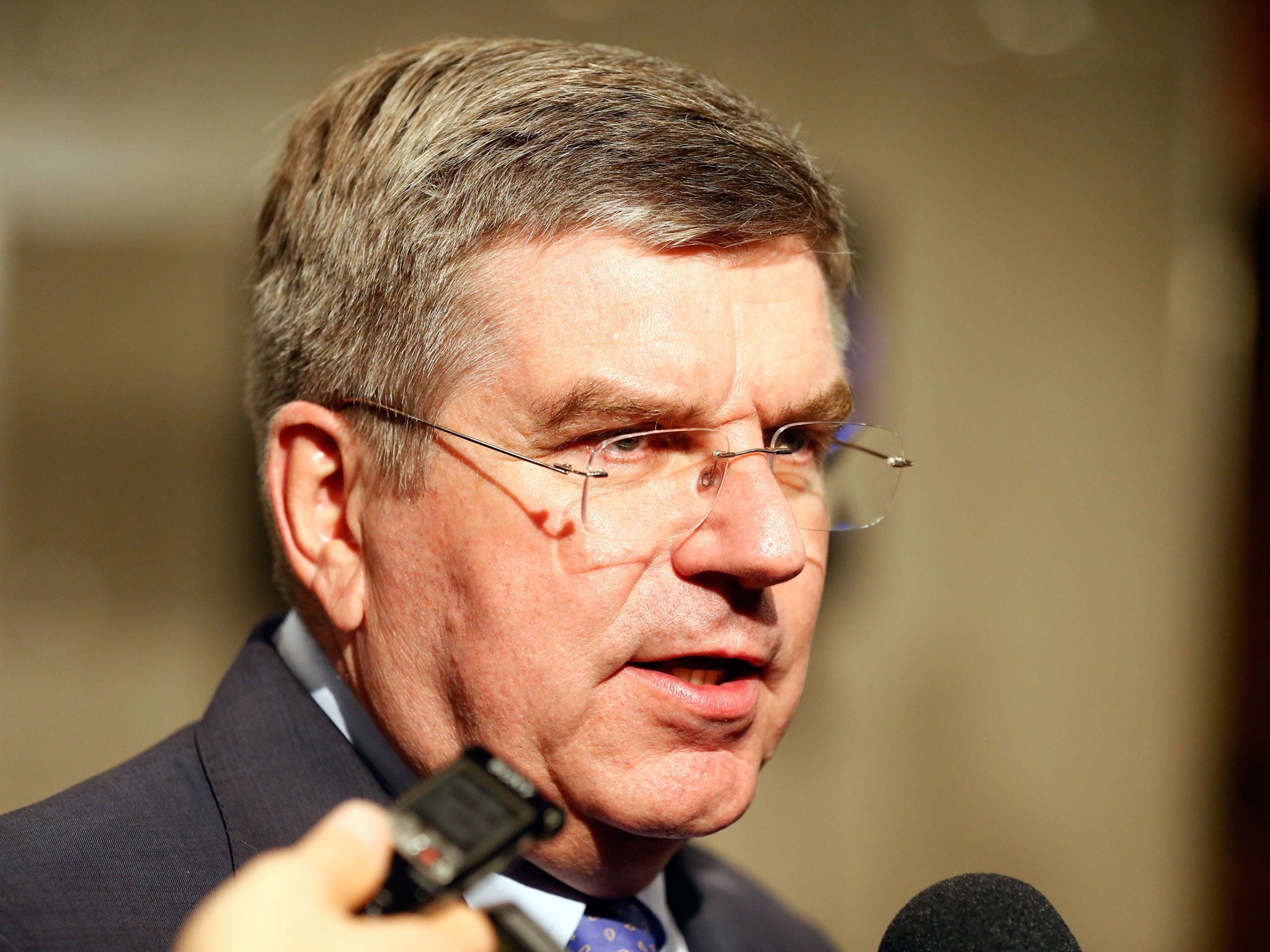Golden fencer Thomas Bach has the edge in Oympic president race

Your support helps us to tell the story
From reproductive rights to climate change to Big Tech, The Independent is on the ground when the story is developing. Whether it's investigating the financials of Elon Musk's pro-Trump PAC or producing our latest documentary, 'The A Word', which shines a light on the American women fighting for reproductive rights, we know how important it is to parse out the facts from the messaging.
At such a critical moment in US history, we need reporters on the ground. Your donation allows us to keep sending journalists to speak to both sides of the story.
The Independent is trusted by Americans across the entire political spectrum. And unlike many other quality news outlets, we choose not to lock Americans out of our reporting and analysis with paywalls. We believe quality journalism should be available to everyone, paid for by those who can afford it.
Your support makes all the difference.Thomas Bach has been fencing since he was a five-year-old growing up in Bavaria. It appears to have equipped him perfectly for the cut and thrust of sporting politics that leaves the 59-year-old as the man to beat in Tuesday’s election to succeed Jacques Rogge as president of the International Olympic Committee.
He would be Rogge’s choice – not that the discreet Belgian would ever come out and say so – having been a trusted vice-president. Bach is seen as the strong favourite in the six-man field ahead of the Puerto Rican banker Richard Carrion, the man who has done so much to fill the IOC’s coffers (always a vote winner), and another vice-president in the Singaporean Ng Ser Miang.
Bach has a CV that attracts admiring glances in this world. He has a sporting pedigree in that his fencing skills took him to Olympic gold in 1976, and also trained as a lawyer to acquire another skill-set that has served him well. As he switched from athlete to administrator Bach had the early support of Juan Antonio Samaranch, the Spaniard who ran the Olympic movement for more than two decades, and has served his time in key positions such as heading anti-doping.
Bach also leads his national Olympic association. In Germany he has been accused by journalists of using his positions to gain work. He rejects all such allegations but did couch the denial by stating that there were “areas where personal friendships that might be a result of the honorary work [as IOC vice-president] overlap with the work as a lawyer.”
Bach’s key backer is Ahmad al-Fahad al-Sabah, a wealthy Kuwaiti sheikh and an influential figure in the Olympic movement. Ahmad broke IOC rules by publicly backing the German ahead of the election and in the sometimes impenetrable politics of the IOC it remains a possibility that there may be enough members opposed to the Bach/Ahmad ticket to come together behind an opponent late in the day. Carrion, who likes to give off-the-cuff speeches with no notes, is gaining late support.
The election follows the same process as Saturday’s vote for the 2020 host with candidates being eliminated over a series of rounds. Sergei Bubka, the great Ukrainian pole vaulter turned politician, is thought to be vulnerable to an early exit.
Join our commenting forum
Join thought-provoking conversations, follow other Independent readers and see their replies
Comments